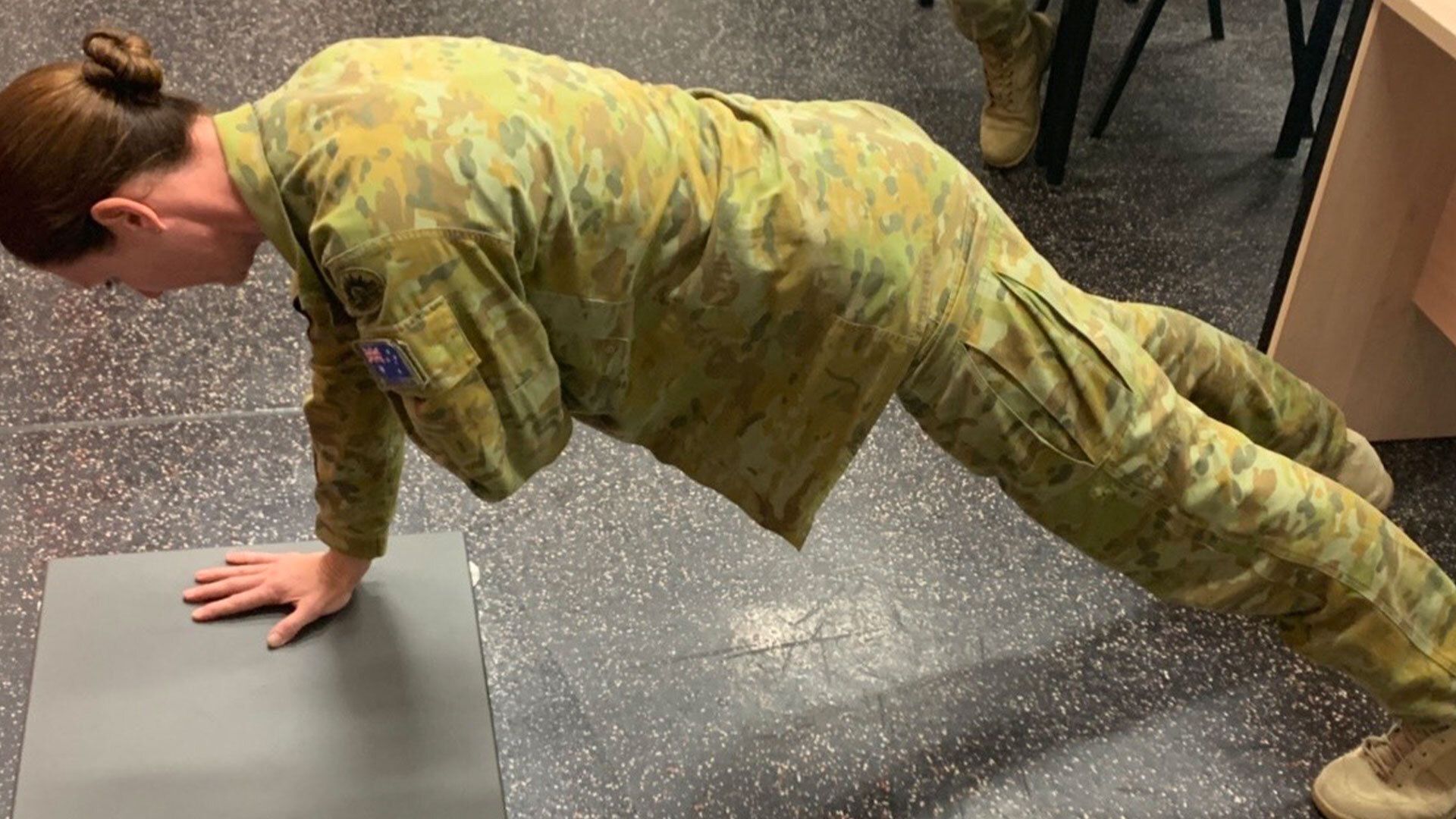Using AI to build a more resilient soldier
Add Axios as your preferred source to
see more of our stories on Google.

An Australian servicemember uses the Sparta Science platform. Photo: Courtesy of Sparta Science
A Silicon Valley startup is using machine learning to create individualized fitness plans designed to reduce injury risk.
Why it matters: Musculoskeletal injuries are a major cause of lost time for both athletes and members of the military. A platform like Sparta Science that can leverage machine learning to identify weak points before an injury could result in major health care savings.
How it works: Subjects carry out three different kinds of fitness assessments on Sparta's force plates: one involving balance, one involving the plank position and one involving a jump.
- The plates — what Sparta Science CEO Phil Wagner calls a "high-powered bathroom scale" — granularly measure the force the subject is able to exert in different positions.
- The company's machine learning platform takes that data and analyzes it to screen for potential injury risks in different kinds of activity, or to assess recovery if the system is being used for rehabilitation.
- "When subjects perform a movement on the force plates, we can tell them 'here is your risk in these areas, and here is the best way to address it,'" says Wagner.
- Sparta Science has worked for years with the University of Pennsylvania athletic program, which saw declines in the number of injuries and reductions in annual health insurance premiums.
More recently Sparta Science has branched out to the military, where "non-combat-related musculoskeletal injuries" account for up to 65% of soldiers who can't deploy for medical reasons.
- Last month the House of Representatives passed legislation that includes a provision to study the benefits of force plate technology, with possible plans to possibly implement it throughout the Defense Department.
The bottom line: As health monitoring devices grow cheaper and more precise, expect to see similar solutions that aim to use AI to assess health individually and prevent injury and sickness.
Go deeper: How new tech raises the risk of nuclear war
